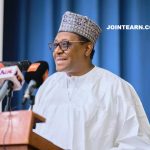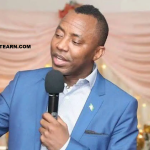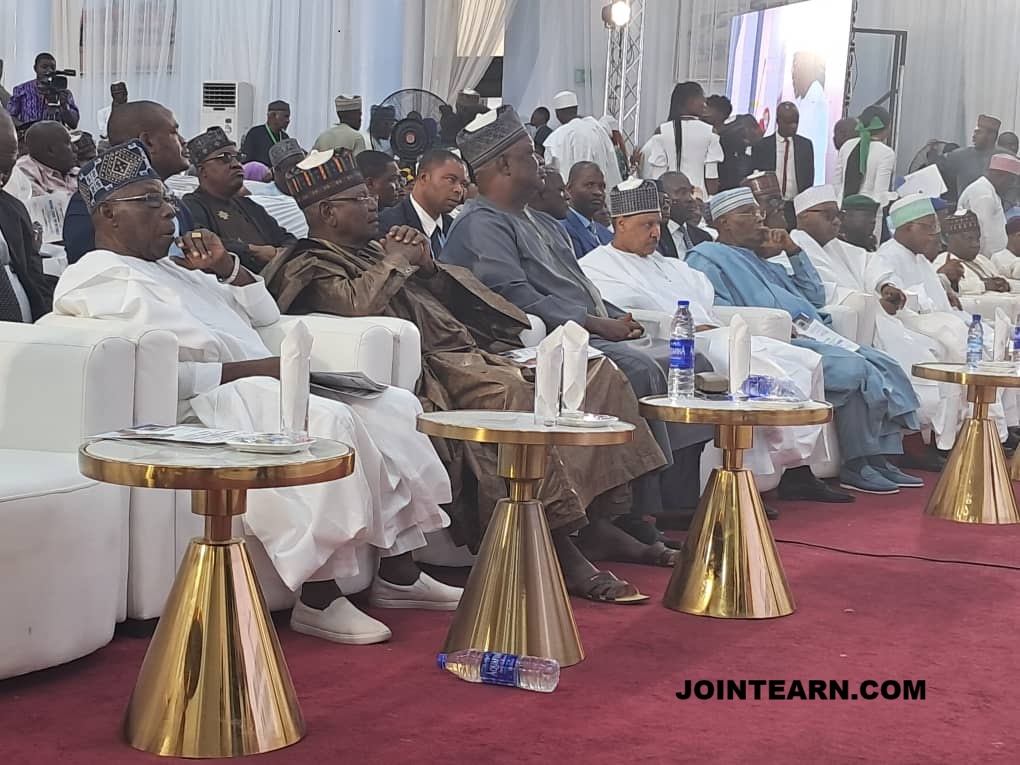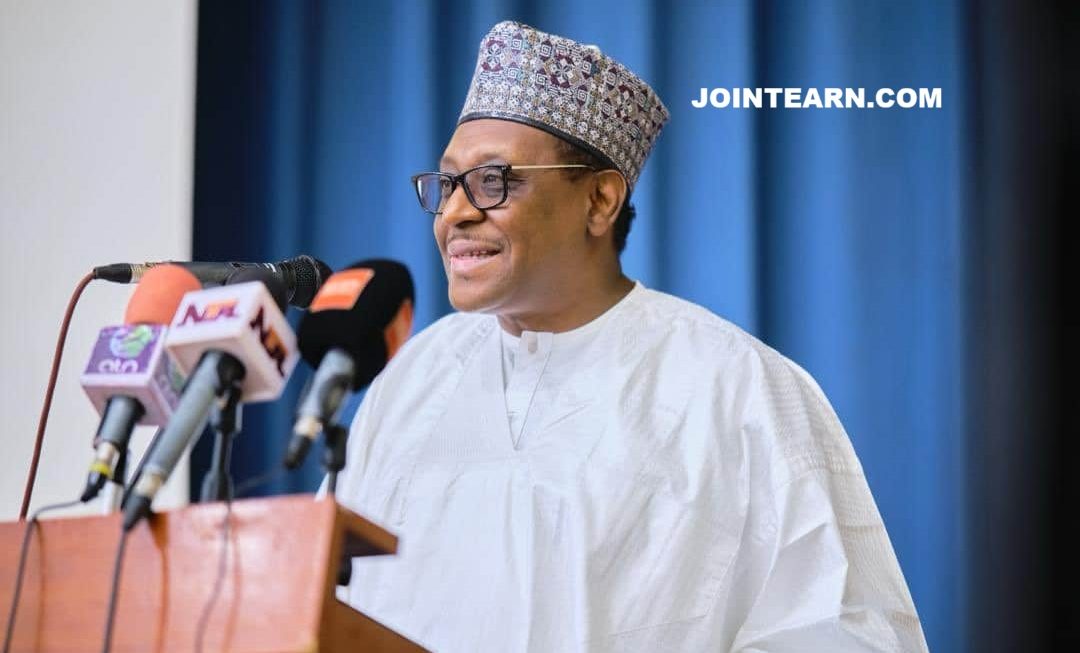The launch of former Jigawa State Governor Sule Lamido’s new book drew a crowd of Nigeria’s political elite and influential figures in Abuja on Monday, in a high-profile event that quickly turned into a convergence of reflections on Nigeria’s democratic development and political history.
The book, titled “Tomorrow Is Now: Perspectives on Politics and Governance,” was officially unveiled at the Shehu Musa Yar’Adua Centre, Abuja. The event attracted dignitaries from across the nation’s political spectrum, including former President Olusegun Obasanjo, former Vice President Atiku Abubakar, and former Enugu State Governor Chimaroke Nnamani, among others.
A Gathering of Political Titans
Former President Olusegun Obasanjo, the chairman of the occasion, praised Sule Lamido as a man of consistency, courage, and conviction. He commended Lamido’s efforts not only as a writer but as someone who has remained steadfast in his commitment to Nigeria’s unity and development.
“I have known Lamido for decades,” Obasanjo said during his address. “He is not someone who follows the crowd. He speaks truth to power, and this book is a reflection of his deep thoughts about our country’s journey and the challenges we continue to face.”
Obasanjo, known for his frank commentary, took the opportunity to touch on national issues, stressing the need for leaders with vision, integrity, and a genuine interest in the welfare of the people.
Also in attendance was former Vice President Atiku Abubakar, who described the book as a timely and vital contribution to Nigeria’s democratic literature. He noted that Lamido’s insights, drawn from decades of political participation and public service, are critical for future leaders and policymakers.
“Sule Lamido is one of the few politicians who have consistently stood for progressive ideals,” Atiku remarked. “This book is not just a memoir. It is a guide, a reflection, and more importantly, a call to action.”
Insight Into Nigeria’s Political Landscape
The book, which spans over 400 pages, chronicles Lamido’s experiences from his early days in politics as a member of the People’s Redemption Party (PRP) to his tenure as Foreign Affairs Minister under President Obasanjo, and later as Governor of Jigawa State from 2007 to 2015.
According to Lamido, the book is his modest contribution to the understanding of Nigeria’s political history, democracy, and governance. Speaking at the launch, he said he felt compelled to share his perspectives, particularly at a time when Nigeria appears to be struggling with leadership challenges, national unity, and economic recovery.
“I have lived through the various phases of Nigeria’s evolution,” Lamido said. “From military rule to democracy, from economic hardship to oil booms, and from hope to despair. This book is a product of my personal experiences, lessons learned, and aspirations for a better Nigeria.”
He also emphasized the importance of ideology and vision in governance, lamenting the current trend of political opportunism and the lack of ideological grounding among many politicians.
Notable Guests and Speakers
The launch event was well-attended by several other prominent Nigerians, including National Assembly members, former ministers, governors, diplomats, and civil society leaders.
Former Governor of Enugu State, Senator Chimaroke Nnamani, described Lamido as one of the most ideologically grounded politicians of the Fourth Republic. “Whether you agree with his politics or not, you cannot deny his commitment to his beliefs and his ability to articulate them clearly,” Nnamani said.
Others present included former Niger State Governor Babangida Aliyu, former Minister of Police Affairs Adamu Waziri, and several PDP chieftains. The presence of these leaders was seen by many observers as a show of solidarity and a rekindling of political camaraderie among stalwarts of the People’s Democratic Party (PDP).
Intellectual and Cultural Reflections
Beyond politics, the launch also became a forum for intellectual exchange. A panel of scholars and political analysts who reviewed the book noted that it fills a gap in Nigeria’s political literature, especially from the viewpoint of someone who participated actively in governance.
Professor Jibrin Ibrahim of the Centre for Democracy and Development described the book as “a well-written, brutally honest, and historically grounded narrative,” adding that Lamido’s courage to confront both personal and national failings was commendable.
“You don’t often find political figures willing to be this honest,” he said. “Lamido’s book is not about self-praise. It is critical, self-reflective, and offers useful policy suggestions for democratic consolidation.”
Hope for the Future
As the event drew to a close, the mood among attendees shifted from celebration to contemplation. Many speakers stressed the need for a return to values-driven politics, where service to the nation overrides personal ambition.
In his vote of thanks, Sule Lamido expressed his gratitude to the guests and noted that the real task lies in building the Nigeria of tomorrow. “If this book can inspire just one young Nigerian to engage in meaningful political discourse or service, then I will consider it a success,” he concluded.
The event ended with book signings, photo sessions, and informal discussions among political allies and critics alike—underscoring how Lamido’s latest work had momentarily unified various strands of Nigeria’s often fragmented political space.
With Nigeria at a crossroads, many see books like “Tomorrow Is Now” as necessary interventions in the ongoing conversation about where the nation is headed—and what it must do to get there.











